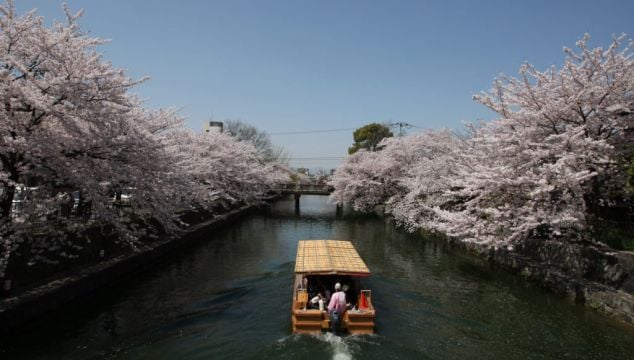Japan said on Tuesday it would start conducting "test tourism" in the form of limited package tours in May as a way of gathering information prior to a full re-opening of the country to tourism.
Though tourism was a major pillar of Japan's economy, tourists have not been permitted to enter since it adopted strict border controls in 2020 at the start of the coronavirus pandemic.
Regulations have been loosened slightly to allow students and some business travellers to enter. But individual tourists remain barred, despite calls from industry leaders hoping to restart tourism to take advantage of the yen, which has fallen to 20-year lows.
The Tourism Agency said on Tuesday that it would start allowing small group tours to enter from later this month as "test cases" to gain information for a broader resumption of tourism at an unspecified future date.
Tourists who have been triple-vaccinated and come from the United States, Australia, Thailand and Singapore will be allowed to take part in the tours, which will be strictly planned in conjunction with travel agencies and accompanied at all times by tour conductors, it added in a statement.
"This venture will allow us to verify compliance and emergency responses for infection prevention and formulate guidelines for travel agencies and accommodation operators to keep in mind," it said.
Japanese Prime Minister Fumio Kishida said earlier this month during a speech in London that he would bring Japan's border controls into line with other wealthy democracies in June, but no further details have been given, including when the country will fully open its borders to tourists again.
The government is aiming for a "phased relaxation" of border measures that balances infection controls and ease of entry into the country, said Makoto Shimoaraiso, a Cabinet Secretariat official for Japan's Covid-19 response.
"We are currently discussing concrete plans for border measures after June, including quarantine measures such as testing and standby (status)," he added.
In 2019, Japan hosted 31.9 million foreign visitors, who spent 4.81 trillion yen.







